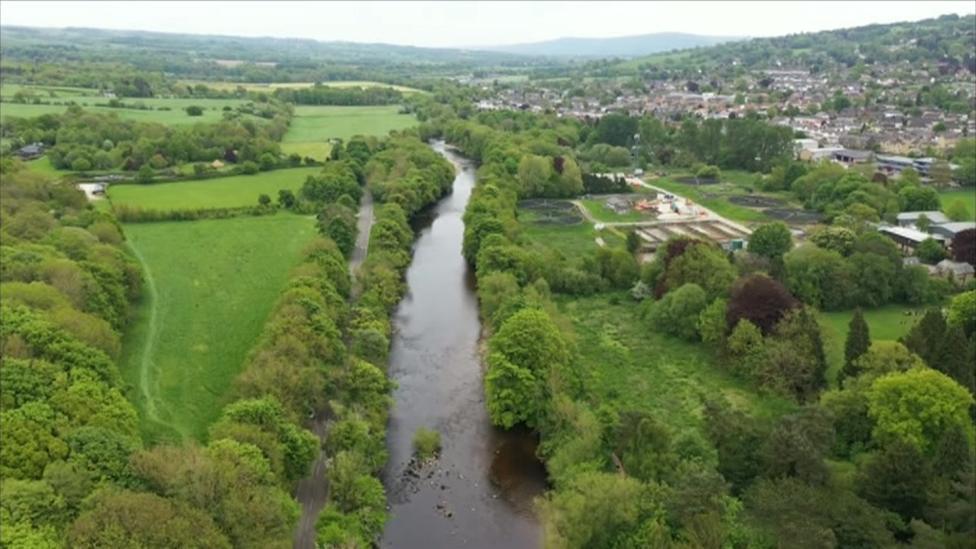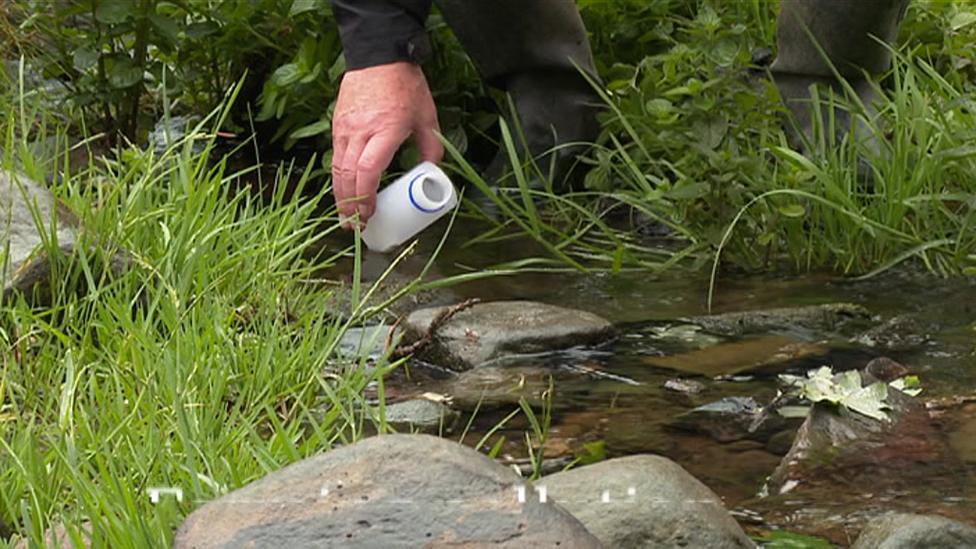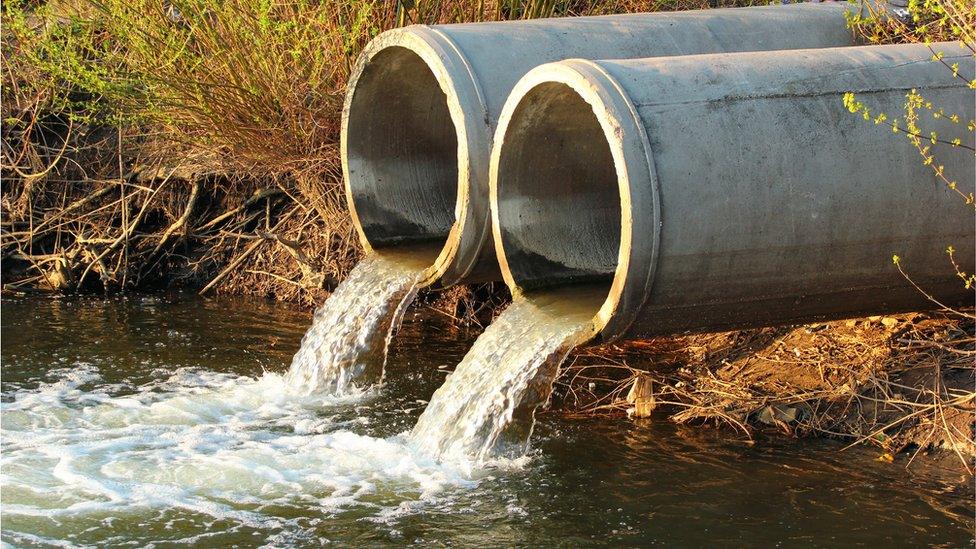Expert calls for extra funding to reduce Yorkshire river pollution
- Published

Tests showed an E. coli rate around 10 times what would be expected in a moorland stream
An ecologist has called on the government to provide extra financial support for farmers to help reduce pollution in rivers.
Prof Rick Battarbee said tests on an Ilkley Moor stream showed high levels of E. coli, nitrates and phosphates.
As well as sickness, pollutants can fuel the growth of aquatic plants which deprive fish of oxygen, he said.
Farming Minister Mark Spencer said the government was working with farmers to improve the environment.
Prof Battarbee, an expert in rivers from University College London, carried out the tests for BBC Look North.
He said the stream was not subject to sewage releases by Yorkshire Water, so agricultural deposits were the most likely cause.
Results showed an E. coli rate around 10 times what would be expected in a moorland stream.
The nitrate level was also 10 times higher than expected, with phosphates around five times what would be considered normal.
Prof Battarbee said: "If people were swimming and ingesting or swallowing that water, there's a risk that they would at least get some stomach upsets like diarrhoea.
"There needs to be help for farmers to manage their land so that the waters that drain through their land don't get polluted."
The academic said measures, such as fencing off becks, could be expensive.

Tests carried out on a stream on Ilkley Moor showed high levels of E. coli, nitrates and phosphates
Cattle drinking from watercourses and leaving droppings in the river was another cause of polluted water, as well as run-off from fertiliser spread on fields.
Dairy farmer Ed Goodall worked with the Yorkshire Dales Rivers Trust to ensure cattle were unable get in the water on his land.
He also spreads fertiliser away from water to reduce run-off at his farm in Scarcroft, on the edge of Leeds.
"We've put big boundaries around the stream and try not to get closer than 10m (33ft) away," he said.
"There's definitely an awareness in the industry, we get a bad name for polluting but we don't try to pollute.
"The thing about farming is we are always trying to improve."

Prof Rick Battarbee called for extra government funding to reduce river pollution
Prof Battarbee said the levels of pollution found in the West Yorkshire test could have been down to recent weather conditions.
"I think in this case because we sampled after rain, that rain was sufficient to wash off manures from the soil into the stream."
Speaking to the BBC at the Great Yorkshire Show in Harrogate, Mr Spencer said there was funding available to pay for new farm infrastructure.
"We're working with farmers trying to improve the techniques, trying to improve the efficiency of that fertiliser application, " he said.
"We're also doing grants for slurry systems to make sure farmyard manures don't end up in our rivers."

Follow BBC Yorkshire on Facebook, external, Twitter, external and Instagram, external. Send your story ideas to yorkslincs.news@bbc.co.uk, external
- Published18 May 2023

- Published23 February 2023

- Published19 January 2022
